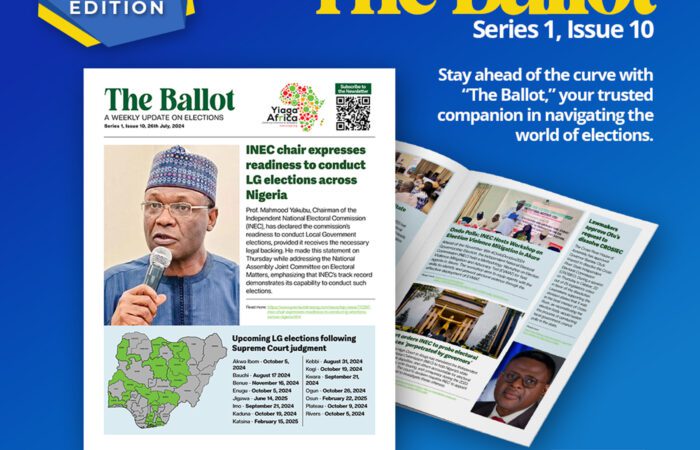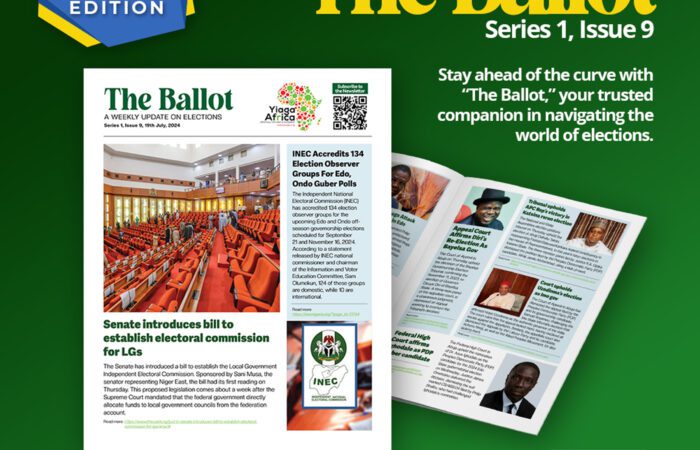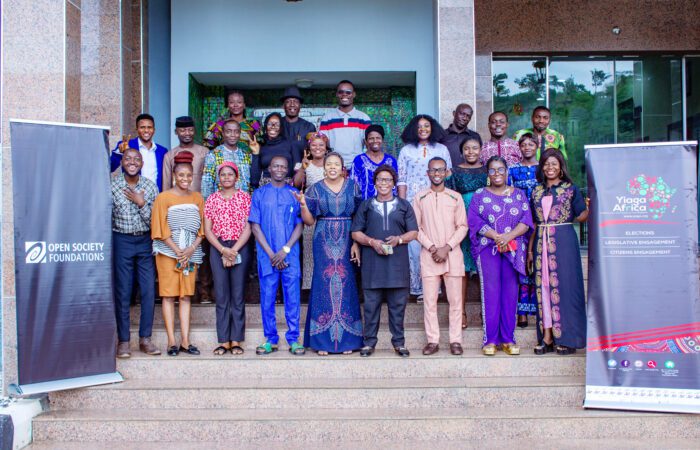Out of all the sections of the election amendment recently rejected by President Muhammadu Buhari, election sequence seems to be generating more reaction and debate more than other equally important sections of the act aimed at improving Nigeria’s electoral process. As a matter of fact, the refusal of the President to assent to the amendment continues to revolve around change of election order even though the act contains other vital sections that should not be jettisoned.
Looking at the electoral amendment act holistically, various sections of the act tend to fix majority of the issues bothering Nigeria’s electoral system, but apparently what Nigerians seem to be concerned about is the election sequence and how the bandwagon scenario may or may not play a role.
One major issue that has bedeviled Nigeria’s electoral system is political parties and the problem of internal democracy which continues to be a bottleneck, especially for young people going into the system. It would have been heart lifting to see an amendment like the one currently in conundrum, which could see the deepening of political party democracy, party nomination and substitution of candidates.
Basically, section 33 of the electoral amendment which the President declined assent, prohibits the wanton substitution of candidates which has been submitted to the electoral body as it used to be ab initio. In this vein, only death or personal withdrawal by candidates, is the only reason a candidate can be withdrawn from a political race according to the amendment.
While Nigerians are busy defending the mundane idea that, Presidential election gains more attention and thus if it comes first, it will lead to some form of voter apathy afterwards, the electoral amendment has better plans of improving the integrity of the entire process. For example, while section 63 of the act stipulates that presiding officer in an election shall announce election results at the polling unit, section 67 compels collation officers and returning officers to verify and confirm the number of accredited voters and results. As announcement of fake results now becomes a criminal offence with 5 year’s imprisonment without an option of fine. Take that to the bank!
Another important issue the amendment would have addressed is the charade we see at State level in terms of Local Government elections, as section 152 of the act seeks to extend the electoral act to elections conducted by State Independent Electoral Commission (SIEC). There is no gainsaying that this aspect of the act is vital, as it will go a long way in curbing electoral malpractice in Local Government (LG) elections currently seen as the hub of election rigging. A typical example will be the Kano state LG elections.
As politicians and their stooges continue to dwell on election sequence and how the expectedly heated Presidential election is a reason to focus on election sequence, section 138 and 139 of the election amendment sorts out the quality of election adjudication process. While section 138 of the electoral amendment expands the ground for petitioning an election characterized by non-compliance with election guidelines, section 139 puts a stamp on the fact that election can be invalidated by non-compliance with the electoral act, INEC published guidelines, manuals, regulations procedures and directives.
Most importantly and very much commendable is the increased deployment of technology for elections. While the use of smart card reader remains a landmark innovation, the fact that the amendment compels INEC to maintain a National Electronic register of election results in a different database for digital archiving and easy access to election result by election stakeholders is equally cheering. At this point, it is pertinent to say that election observation bodies like YIAGA Africa’s WatchingTheVote are already few steps ahead when it comes to the use of Information Technology to observe, report and verify election day process and results.
Amongst other things the electoral amendment seeks to address, is increased citizen participation by ensuring every complaint by citizens be handled within a stipulated time. The issue of citizen participation and increased voter education which is gradually shaping up ahead of the 2019 elections is no doubt more important than the election sequence which will still be left at the mercy of voter turnout and logical voting decision of the increasingly politically enlightened citizens.
Moshood Isah is a Communication Expert interested in Political Analysis.
He is the Media Officer of YIAGA Africa and can be reached via misah@yiaga.org
He tweets @Moshoodpm






